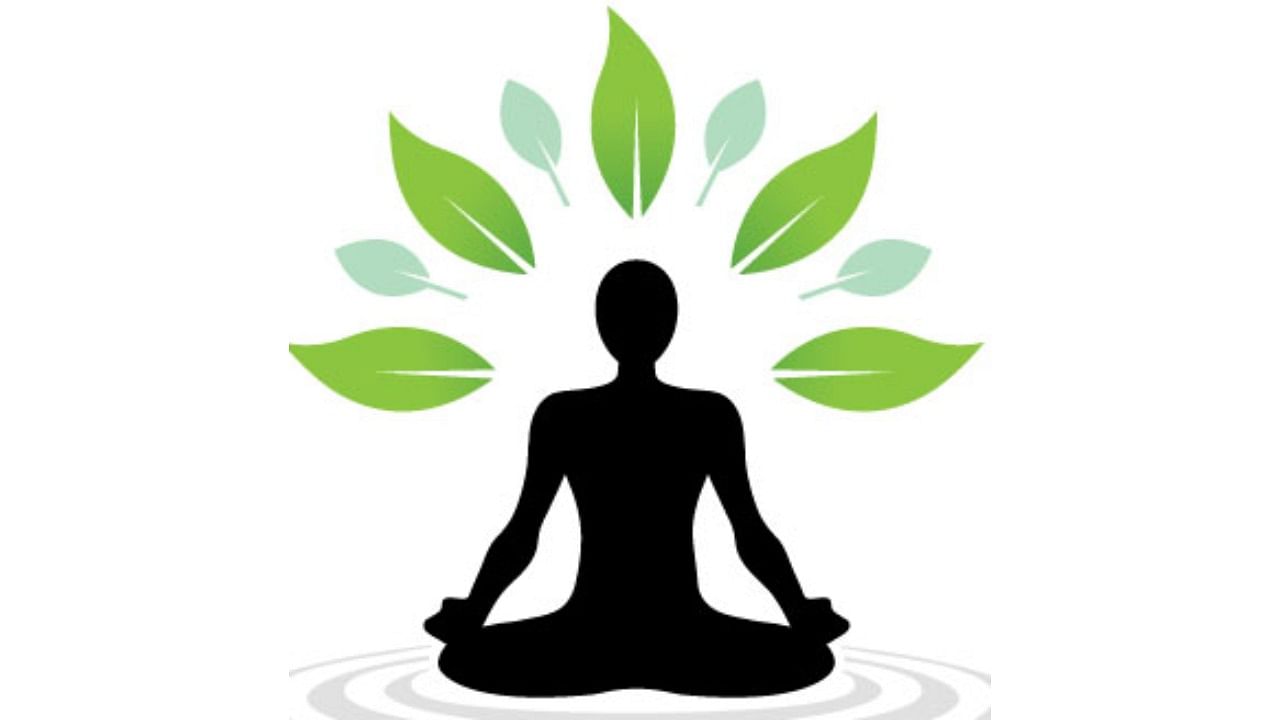
Oasis logo.
Credit: DH Illustration
Birth and death are milestones in one’s life. Birth, do we fear? No, since one is not even aware of birth. For the same reason, there’s no need to fear death since its occurrence is not known at the current moment, even though a certainty.
We mourn the other person’s death but innately lack acceptance of our own, either due to fear or the conviction that death will never approach us. Should we fear death?
Our Upanishads helps us to delve deeper into Vedantic texts, which throw light indicating a response to the burning topic of birth-death cycle. The solution is to gain the right knowledge of our own self in order to cause cessation of re-births, which means ‘putting an end’ to death too. When Sri Adi Shankaracharya during his pilgrimage to the holy city of Kashi chanced upon an elderly man trying to learn a new skill, it occurred to him that instead the man could have spent time worshipping and knowing God. This led him to compose Bhaja Govindam, the import of which is to make best use of the time at one’s disposal to learn to praise God by knowing Him thoroughly.
In it he implied that death approaches without a forewarning.
Birth is an effect while the underlying cause is one’s past karmas.
Today’s human body is only an expression through birth to undertake right sadhanas in accordance with the Sastras that will result in Moksha or enlightenment – no more rebirth.
The human though assumes that it is this embodied individual with a dictating mind that propels one to indulge in more karma to put him back in the cycle of life, a different body each time. Either sentient or insentient is a direct result once again in accordance with karma theory.
Birth is without our consent and is celebrated year-on-year. A firm understanding helps that death too happens without our consent and is celebrated year-on-year as past rites.
The former in one’s presence in this embodied self, while the latter by a lamenting group in the absence of one’s body.
The true “You” is without death and eternally present, as Existence-Consciousness-Bliss. Identification with body causes one to fear death, but in the ultimate goal of Self-realisation there is no reason to fear death.